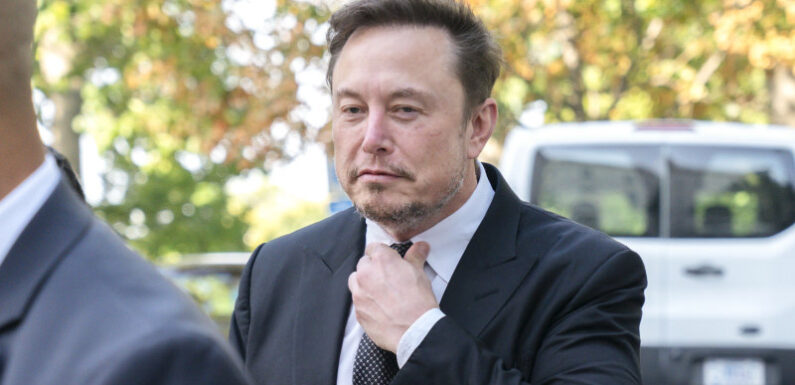
Save articles for later
Add articles to your saved list and come back to them any time.
Meta, TikTok and Elon Musk’s X all face the prospect of fines of up to $787,000 if they fail to clamp down on hate speech, content harmful to children and sinister use of AI as the country’s internet watchdog is beefed up to protect Australians from growing online threats.
Communications Minister Michelle Rowland will on Wednesday announce a review of the Online Safety Act and an expansion of rules that social media firms must follow to avoid penalties.
Communications Minister Michelle Rowland.Credit: Alex Ellinghausen
This set of rules – known as the Basic Online Safety Expectations (BOSE) Determination – will be expanded to ensure children’s best interests is a “primary consideration” for tech firms, which will be forced to act against harmful material created by generative AI, detect hate speech, and publish regular reports on how it is helping keep users safe.
The limited scope of the fines means the new penalties are largely symbolic, but could damage the reputations of the multinational social media empires if they are found to breach duty of care.
Rowland will tell the National Press Club that Delia Rickard, a former deputy chair of the Australian Competition and Consumer Commission, will review online safety legislation with the aim of sending a clear message to big tech firms about the government’s minimum standards.
Current laws provide protections for individuals, but there is no mechanism to address abuse directed at certain communities based on their religion or ethnicity, according to Rowland.
“There is deep concern across the community about the way hateful language spreads online and its impact on social cohesion – recent reporting about the rise in antisemitic and Islamophobic rhetoric on X makes this clear,” Rowland will say, according to a draft version of her speech.
“Australia needs our legislative framework to be strong, but also flexible enough to respond to
an ever-evolving space.”
The eSafety commissioner can demand answers from social media firms about whether it is following the government’s rules for the industry.
In October, the eSafety commissioner fined X more than $600,000 for failing to explain how it was fighting child abuse, amid revelations the social media platform reduced efforts to detect illegal material after its purchase by billionaire Elon Musk.
Ed Husic.Credit: Alex Ellinghausen
eSafety commissioner Julie Inman Grant said the new rules would help force the tech sector “to act now to embed user safety and to root out hate, pro-terror content and child sexual abuse material from their platforms”.
“These proposals will help us shine a light on what companies are doing – and crucially, what they are not doing – to keep Australians safer on their platforms, and ultimately to lift their safety standards, policies and practices,” she said.
The proposed changes form part of the government’s broader reforms project to regulate artificial intelligence, led by Industry Ministry Ed Husic who earlier this month in London, alongside 27 countries, signed the Bletchley Declaration to jointly tackle the technology’s potentially “catastrophic” harms, such as the use of deep fakes.
Rowland will say AI “has incredible potential as a positive tool” but “we have also seen it used to create images designed to humiliate, embarrass, offend – and even abuse – others.”
“Australia needs our legislative framework to be strong, but also flexible enough to respond to an ever-evolving space.”
Consultation on the rule changes will open on Wednesday and close in February.
Cut through the noise of federal politics with news, views and expert analysis. Subscribers can sign up to our weekly Inside Politics newsletter.
Most Viewed in Politics
From our partners
Source: Read Full Article

